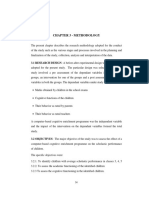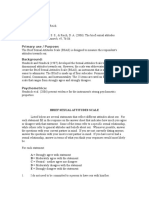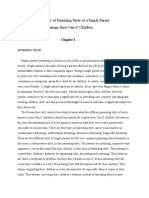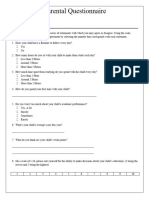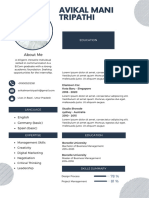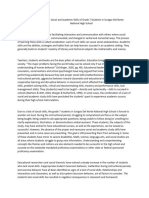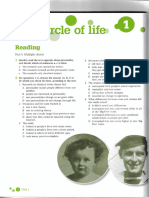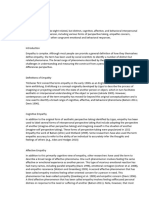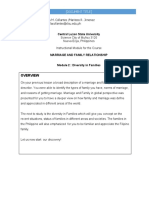0% found this document useful (0 votes)
1K views2 pagesCPRS-SF Administration
The Child-Parent Relationship Scale – Short Form (CPRS-SF) is a self-report tool designed to assess parents' perceptions of their relationships with children aged 3 to 12. It consists of 15 statements rated on a 5-point Likert scale, measuring conflict and closeness in the parent-child relationship. The scoring indicates that lower conflict scores and higher closeness scores are desirable for a positive relationship.
Uploaded by
Shabnam Sims ChoudhuryCopyright
© © All Rights Reserved
We take content rights seriously. If you suspect this is your content, claim it here.
Available Formats
Download as PDF, TXT or read online on Scribd
0% found this document useful (0 votes)
1K views2 pagesCPRS-SF Administration
The Child-Parent Relationship Scale – Short Form (CPRS-SF) is a self-report tool designed to assess parents' perceptions of their relationships with children aged 3 to 12. It consists of 15 statements rated on a 5-point Likert scale, measuring conflict and closeness in the parent-child relationship. The scoring indicates that lower conflict scores and higher closeness scores are desirable for a positive relationship.
Uploaded by
Shabnam Sims ChoudhuryCopyright
© © All Rights Reserved
We take content rights seriously. If you suspect this is your content, claim it here.
Available Formats
Download as PDF, TXT or read online on Scribd
/ 2































